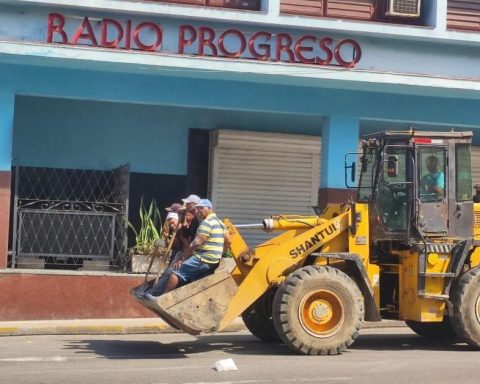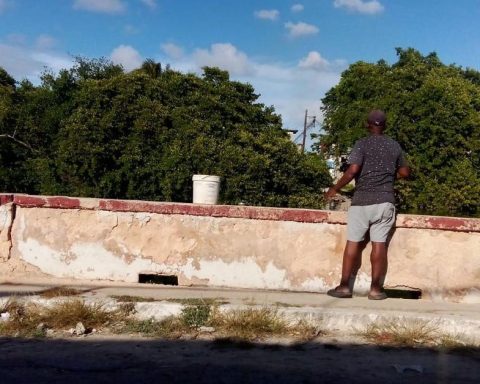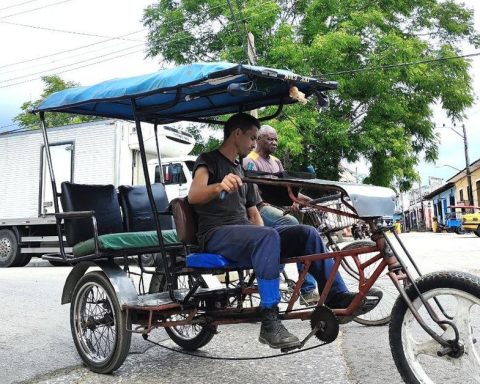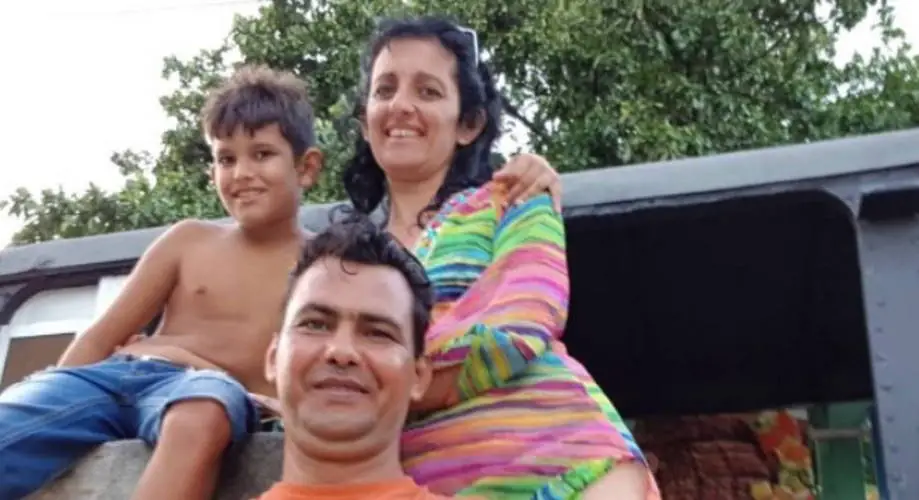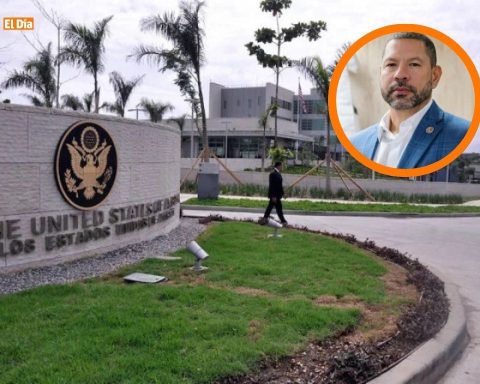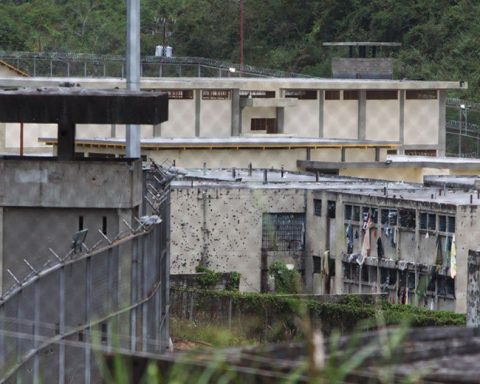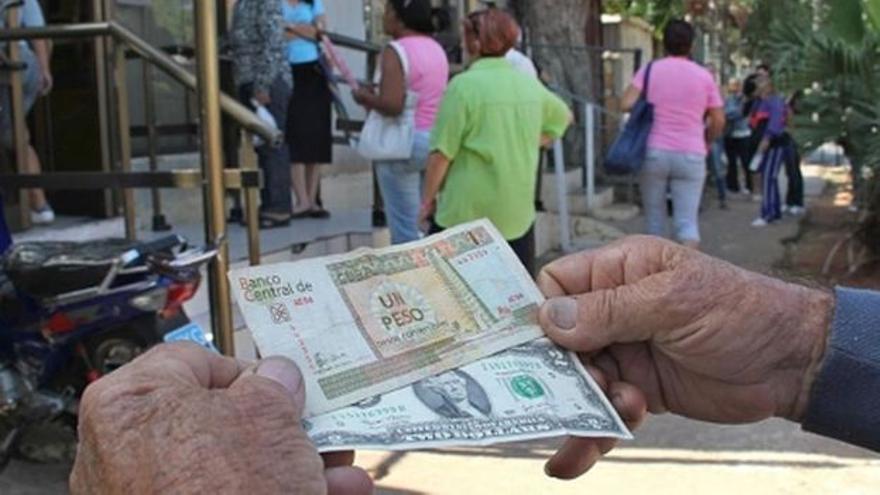
New change of course in economic policy. Cuban banks are once again accepting dollars in cash starting this Tuesday after the publication, a few hours earlier, of a Resolution of the Central Bank in the Official Gazette that enters into force immediately and worries independent experts due to its possible inflationary effects.
The authorities repeal the June 2021 resolution that prohibited the acceptance of the “US dollar in cash by banks and non-bank financial institutions.” At the time, the measure was announced as something temporaryalthough it has lasted two years in which the essential currency for the Cuban economy has circulated on the black market close to 200 pesos per dollar, before stabilizing between 160 and 180, while the official rate for individuals went from 24 to 120 pesos.
According to the Resolution, which attributes the change to the “current circumstances and priorities of economic policy”, things have changed since then due to the end of the worst moments of the pandemic – precisely the ones the country was going through when the measure was introduced. –, the small recovery of tourism and productive activity and, above all, the reestablishment since the beginning of March of remittance shipments from the United States through the Western Union company, a service suspended since 2020 by decision of the Donald government Trump (2017-2021).
The official text justifies its decision “even though the measures of maximum economic pressure that have greatly reinforced the economic blockade remain in force
The official text justifies its decision “even though the measures of maximum economic pressure that have extremely reinforced the economic blockade remain in force, particularly those aimed at hindering Cuba’s external financial flows and preventing foreign deposits of US dollars in cash”.
The authorities also mention in the document “the exchange market established in August 2022” –in reference to the announcement of the sale of dollars for individuals at the rate of 120 pesos, without modifying the exchange of 24 for one in force for companies. That decision did not have the effect expected by the Government in its attempt to capture the dollars exchanged in the informal market at a rate that rose like foam and was about to reach 200 pesos.
Although the text reveals the “confidence that this step will be beneficial for national economic activity and for the population”, it plans to warn of a new twist in the script, since it adds that, since the underlying problem – the embargo – has not been resolved, “it will be necessary to monitor the evolution of banking and financial activity”.
The Cuban economist resident in Spain Elías Amor points that the most evident consequence that can be revealed is the one that threatens the own –alleged– principles of the Revolution, since social justice will be broken.
“From this moment on, Cubans with ‘faith’ [familia en el exterior] they are going to enjoy, in advance and without more than receiving money in remittances by any of the companies that are dedicated to it, or informally in the pockets of travelers, a standard of living and spending possibilities higher than that which they only receive their income in Cuban pesos. And you look at that, it’s inflationary “, he says in his blog Cubaeconomy.
The expert admits that the differences already existed before, but that now the movement will become visible. In addition, he regrets that the Ordering Task is being questioned again without anything happening and warns of the risk that this decision entails in the midst of galloping inflation that reaches 70% year-on-year in some essential sectors, such as food.
The economist Pedro Monreal has also put his finger on the sore spot on the Ordering Task in his twitter account, where he mocks the lurches of the Government. “Luckily they studied monetary unification for ten years,” questions the expert, who describes the measure as “laundering” of the black exchange market and “partial dollarization resulting from an increasing use of the dollar in private transactions.”
“Luckily they studied monetary unification for ten years,” questions the expert, who describes the measure as “laundering” of the black exchange market
The decision has not gone unnoticed by readers, who have flooded the official press with comments, many asking that the decisions of the Government not be questioned, which in their opinion is trying to face a very complicated economic situation and for that alone any move can be thanked , however wrong it may be. But a significant number of readers stress that the cash deposit of dollars should never have been prohibited and see proof in this reversal.
“Dollar deposits should never have been prohibited, but right now it has several problems. 1. The official exchange rate is below the unofficial rate. 2 In recent times, people have needed to withdraw dollars from the bank and the He himself has not had a way to give it, explaining that he does not have them. This brings, as a consequence, distrust on the part of the client. 3. Private companies for their importation have a high need for them and the banks do not have it, which brings in look for it in other markets”, reasons one user.
And that distrust is visible in other dialogues. “Serious question based on experience: What guarantee do natural persons who make deposits in dollars have that tomorrow they will not be able to extract the money from their deposits or bank accounts if these “conditions” change? Asks one whose question finds a prompt answer from another reader. “That’s the real question, what if they back off later? The dollar has been going in and out of the Cuban economic landscape in an unstable, illegal way. they approved it, later, zero cash; and now, once again, we welcome you. In my opinion the measure does not generate confidence. The economy does not stabilize at the stroke of a rudder”.
________________________
Collaborate with our work:
The team of 14ymedio He is committed to doing serious journalism that reflects the reality of deep Cuba. Thank you for accompanying us on this long road. We invite you to continue supporting us, but this time becoming a member of our newspaper. Together we can continue transforming journalism in Cuba.
